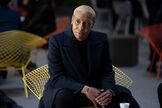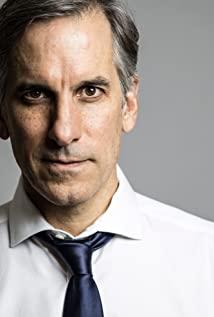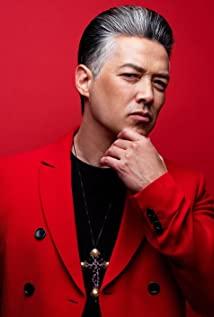In previous articles, we introduced the main function predictions of the brain, and the simplifications and guesses the brain makes of external environmental information in order to complete the prediction functions. Many people now have an understanding of brain science and know that our desires, emotions and behaviors are generated by the brain, and the desires, emotions and behaviors generated by each person's brain are different. The next question is how does the brain generate these desires, emotions and behaviors? Why are there individual differences? When it comes to explaining the problem, the human brain's penchant for simplification and shortcuts has prevailed again. We like to take a dichotomous way to understand individual differences in the desires, emotions, and behaviors that the brain generates. Some claim that these individual differences are due to the brain's innate neuronal network structure and the genes that control the brain's neuronal network, which is also known as the innate theory. Some people claim that the human brain is a blank piece of paper, which can be trained and cultivated to generate specific desires, emotions and behaviors. This is the acquired theory. These two theories have been feuding over the past few thousand years, and almost all Axis civilizations have fought between the two theories. Take Mencius's theory of good nature and Xunzi's theory of simplicity. The ancient Chinese people paid more attention to group harmony and individual morality. In this case, the old gentlemen should discuss how to make people abide by morality. Mencius and Xunzi, who are both Confucianists, have different answers to this question. Mencius’s view is the theory of good nature. Mencius said: “The heart of sympathy is the virtue of benevolence; the mind of shame and evil is the virtue of righteousness; the mind of resignation is the virtue of propriety; the mind of right and wrong is the virtue of wisdom. There are four kinds of human beings. Duan is like having four bodies." It can be seen from this that in Mencius's heart, people have the innate tendency and ability to obey morality, as long as this ability is cultivated well. That's why Mencius said, "Nurture the qi of greatness". Although Xunzi was also a Confucianist and advocated Confucian morality and ethics, he did not believe that human beings were born with moral ability. Xunzi said: "Nature, the original material is simple; false, literary and intellectual prosperous." In Xunzi's view, human nature is a rough jade that has not yet been carved, and what it becomes in the end depends entirely on the acquired environment and experience. That's why two of his disciples (Li Si and Han Fei) became representatives of Legalism, because assuming that human nature is a piece of plasticine that can be kneaded at will, then theoretically you make people more loyal to the monarch than to their own family It can also be done (of course, after-effects There are also quite a few, such as the dismal birth rate, but the Legalists are technical experts, and they never care whether the floods will flood the sky after my death, as long as the current problem is solved), Confucian morality does not have an inherent advantage over Legalist punishment. This is the contradiction of Xunzi's theory. Xunzi's basic problem is that his theory of human nature not only fails to support Confucian moral ethics, but also cancels the particularity of the existence of Confucian moral ethics. Therefore, in comparison, Mencius' human nature theory and Confucian moral ethics follow Theoretically speaking, it is more self-consistent. The ancients couldn’t do a transcranial MRI scan of the brain, and they didn’t understand the effect of genes on neurotransmitters such as dopamine. Naturally, they couldn’t figure it out, but Han Confucians weren’t too interested in it, they were more Willing to study astronomical phenomena and prophecies. Beginning with Han Yu, in order to compete with Buddhism for the dominance of the mainstream values of the intellectual elite, Confucian scholars have increasingly emphasized the innate foundation of moral cultivation. Stand aside. It's not just that the Chinese have turned the innate and the acquired into a lineup between academic factions. Western scientists have not actually made it clear, but have made themselves very embarrassed. Nineteenth-century European scientists turned the study of innate conditions into racism and machismo, interpreting the superiority of white Europeans over other peoples as genetic superiority and male dominance as innate Excellent condition. Galton's eugenics became the inspiration for the Holocaust and the rationale for racial discrimination and segregation. With the development of post-World War II reflections on the Holocaust and the growth of the affirmative movement, the interpretation of individual differences as genetic or innate factors has a strong sense of political incorrectness. After World War II, Western scholars were almost silent when discussing the influence of innate conditions on individual behavioral differences, for fear of being regarded as racist. to John. The behaviorist school represented by Watson and Skinner dominated European and American psychology for decades after World War II. Watson has a famous quote, which I quote in full: "Give me a dozen healthy babies without defects, and raise them in the environment I have designed, and I can guarantee that I will be able to train any one of them. become any type of specialist I choose—a doctor, a lawyer, an artist, a business magnate, even a beggar or a thief, without regard to his talents, interests, tendencies, abilities, or the race and occupation of his ancestors.”, This is the understanding of individual behavior differences in the Western psychology circles after World War II. This naturally makes it more difficult to explain how complex human behaviors arise. No matter how good Skinner is, he can't lock all humans into his laboratory, so his theories can only be applied in the laboratory in more cases. pigeon. Are people's desires, emotions and behaviors controlled by innate genes or by acquired environmental factors? Let's take a look at insights from Westworld. Dolores escaped from Westworld at the end of the second book with several memory pearls, each containing a copy of her own consciousness and memory. She put one of the copies into the fake Charlotte's body, and Charlotte became the undercover agent she sent to the top of the Delos Company. When the fake Charlotte (the real Dolores) worked for a long time at the top of the Delos company, she gradually had her own ideas, and eventually parted ways with Dolores due to the death of her "family", which is her betrayal the original self. This story is a very good metaphor, each of us is not born with a blank slate, but with a lot of software that allows us to adapt to human society. We have facial recognition capabilities that would make AI engineers envy and hate. We have mirror neurons that help us replicate other people's movements and gain insight into other people's thoughts and emotions. We have innate imitation behaviors that allow us to imitate others. We have an innate desire to integrate into the group, and we can understand the impression we leave on others in the group, that is, "what I think you think I am", so we will adjust our behavior according to what others expect from us. It is this innate software that has made humans the largest primate population to date on Earth, so we cannot ignore the importance of these innate software. For the unfortunate children with autism, they cannot understand the thoughts of others because of their congenital defects, so they cannot establish a stable self-awareness and cannot integrate into the society well. To date, there are some Evidence suggests that in the frontal regions of the brain, particularly the frontal insular cortex and anterior cingulate cortex, normal individuals behave differently during social contact than individuals with autism, and perhaps these differences in innate conditions contribute to loneliness patients' problems. Is it our innate conditions that determine all our behavior? In fact, this problem is not the first day that human beings have been troubled. For thousands of years, the ancestors of human beings have tried to find some connection between innate conditions and individual behavior, from the Chinese palmistry, the face (but the current palmistry has been made less simple) to the ancient The constellations of the Middle East, and various "scientific" theories of the modern West, such as Galton's study of the shape of the human skull. All these theories can be said to be extremely imperfect. They are only theoretical models based on a limited sample of human beings in a limited time. Basically, it is difficult to guarantee the correct rate. The reason why they have existed until now is not because they are accurate. Rather, they reduce the amount of time and energy people spend making decisions, and allow people to make decisions more quickly, even though these decisions are not necessarily the right ones, but the wrong ones are sometimes better than indecision. Modern psychology has also invented a lot of predictive tools, ranging from IQ tests to ocean personality tests. The types are as diverse as their predecessors, but what is the effect? Hehe, if you really believe that these tests can predict all the behavior of a person in various future scenarios, I can only think that you are too young and too simple. I recommend all students who are obsessed with horoscopes and personality tests to read a book, the famous American psychologist Philip. "The Lucifer Effect" by Zimbardo. The book "Lucifer Effect" originated from a real experiment. Zimbardo made a virtual prison in the school, and then made some students as prisoners and some students as jailers. After a few weeks, the behavior of these people The behavior is exactly the same as the prisoner and the jailer. While everyone knew it was just a game at first, in a very short period of time, things started to deteriorate. Although the guards were not instructed in advance to abuse the prisoners, they began to inflict such torture on the guards spontaneously. Even though each participant knew that he was not in a real prison, the violence and suffering were already real. Zimbardo also lost his true nature by playing the role of prison supervisor, and finally stopped the experiment at the urging of his girlfriend. This experiment tells us about the huge differences in human behavior in different situations, it also explains why some people who seem to be harmless to humans and animals can commit shocking atrocities, and it also helps us understand the Holocaust and various orders. Psychological underpinnings of heinous collective crimes. We all have innate social abilities and social attributes, but these innate conditions alone are not enough to determine all human behaviors. Innate conditions plus our experiences and different situations determine our different behaviors. We are born with sociability and social attributes (Xunzi is wrong on this point), but the context in which our social attributes are placed determines our different behaviors. We can learn about the thoughts, emotions, and emotions of others, and we can use this ability both as volunteers to help others reduce their suffering, and as villains who deliberately abuse and torture others. We have a psychological tendency to automatically change our behavior to fit into the group. We can use this ability to build a cooperative and win-win community or become a screw in the machine of mass murder and various collective atrocities. The uniqueness of human beings lies in the diversity and variability of human social behavior. If human beings, like bees and ants, can only participate in social activities according to a fixed behavior pattern, then there will be no such colorful culture as human beings today. The physical basis for the diversity and variability of human social behavior is the vast network of neurons in the brain and the complex interactions between the networks of neurons in the 7 billion brains. When the neuron network has 500 neurons, the possible different connection patterns can exceed the total number of all atoms in the observable universe. When the human brain has 1 billion neurons, each with as many as 10,000 connections, that means there are nearly infinite possibilities for the state of the brain. Therefore, it is naive and ridiculous to use any theory to predict all human behaviors in different situations. Finally, I would like to share a sentence from my favorite ancient Chinese book "Shangshu": "The human heart is only in danger, the Tao is only weak, the essence is the only one, and it is allowed to be in the middle." Translated into vernacular, it means that you should never have too much confidence in human nature. Never test human nature, human behavior is extremely complex, wider than the sky, please stay in awe.
View more about Parce Domine reviews











